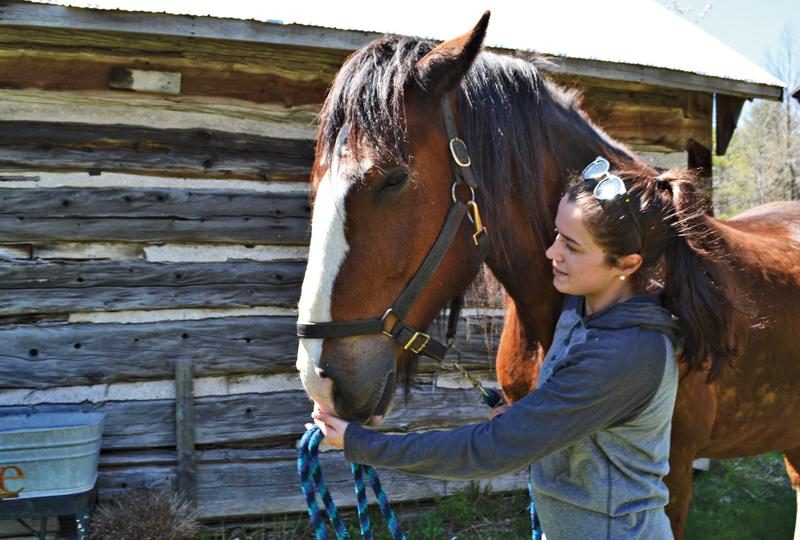
How to Ease Your Daughter Through the Difficulties of Puberty
It goes without saying that puberty is the most testing time for a child’s self-esteem. As a parent, it can be punishing to watch your daughter falter in confidence, and become uncomfortable in her growing body. However, this feeling of helplessness can be lessened by practicing effective parenting strategies to ease your daughter through these trying times. The following techniques can reduce the awkwardness surrounding puberty conversations, and provide more available outlets for your daughter’s sensitive questions and worries.
De-stigmatize puberty terminology
As a concerned parent, it is important to you that your daughter feels comfortable and open when speaking about her physical changes throughout puberty. A key method to alleviating much of the embarrassment that comes along with puberty is to erase the stigma surrounding the associated terminology. As your daughter matures, I suggest that you use the anatomical names for reproductive organs (ex: breasts, vagina, vulva etc.), rather than her previously learned nicknames for these body parts. By avoiding the scientifically derived terms for these organs and features, you are reinforcing the notion that these conversation topics are taboo, which furthers the societal connotation of shame with female sex organs. It is this stigma which makes your daughter more likely to avoid disclosing severe period cramps or unusual vaginal discharge. By using the correct terminology, you and your daughter can discuss female reproductive organs as casually as you discuss the health of your other body parts. This way, your daughter will be more likely to share potential aches or pains she experiences on her physical journey through puberty, and will push her towards having more open and empowering conversations with her peers.
Give advice through a modern lens
Although anecdotes about your own experiences through puberty can provide valuable insight for your curious daughter, it is certain that your puberty experience differs significantly from the typical struggles of teen girls in 2022. Despite better access to puberty products and informative resources, girls face the added challenge of navigating puberty with social media and the ever-pursued ideal of the perfect woman. This introduces the threat of comparison that breeds insecurity in many teen girls. Considering this modern roadblock to a seamless transition to adulthood, it is imperative that you cater your advice towards the current challenges of tweens. This may look like teaching her how to use social media in a healthy and empowering way. It should also involve reminding her that everyone develops at a unique pace, despite the narrative that the media and her peers are perpetuating. Moreover, you should be preaching body inclusivity, and celebrating her beautiful individuality. On the other hand, you can leverage modern technologies to provide helpful tools to ease her through puberty, such as using period tracking apps, following tween empowerment social media accounts, or listening to uplifting womens’ podcasts!
Purchase from tween & teen – friendly brands
One of the benefits of undergoing puberty in 2022 is the availability of tween friendly, female empowering brands. Historically, many companies have profited off of the insecurities of women and girls, perpetuating a value for short-lived trends, as well as imposing the pink tax on period products. However, there is another side of the fashion and wellness industry which operates with the health and happiness of young women at the forefront of their mission statement. At Apricotton, we have designed numerous styles of bras that are designed to grow as your daughter grows, while eliminating the discomfort and insecurity often associated with bra shopping. Apricotton bras are catered to the unique needs of tweens and teens, while we seek to uplift and educate young women during this vulnerable time.
Encourage her to seek advice from “older sister” figures
Despite your best efforts, there are simply some issues your daughter faces throughout her adolescence that she may feel more reassured about sharing with an older peer, rather than a parent. Accepting this reality, you should encourage your daughter to share the burden of her more intimate worries with another trusted person. As an older teenager or young adult, this person is able to provide more impartial and experience-based advice, given their recent encounters with problems alike. This trusted person may be an older sister, older friend or leadership figure in another area of your daughter’s life (i.e a camp counselor, sports coach, guidance counselor etc.). This honest relationship will satisfy your daughter’s need for a helping hand when confronting the difficulties of being a teen, without requiring you to overbear her private life. This strategy will delegate puberty advice to a better-informed person, while preserving your parent-daughter relationship.
Be sure that all conversations are inclusive
It is vitally important that lessons with your child about puberty and reproductive health include the experiences of people of all sexualities and gender expressions. For tweens and teens who are unsure of their sexual and gender identities, the trials of puberty can exacerbate feelings of gender dysphoria and uncertainties in their sexual orientation. This stems largely from media and traditional parenting lessons that impose a cis-heteronormative idea of how a woman should look, feel and express herself. To combat this, you may consider explaining how a person’s hormones change during puberty, and how transgender people may choose to inhibit or increase these hormones when transitioning. Moreso, it may involve you rewriting the typical lessons around heterosexual reproductive health, including the possibility of other LGBT+ inclusive relationships. Overall, ensure that puberty conversations pertain to all people, which will encourage your child to mature into a more open-minded adult and feel accepted, not restricted, by their most authentic self.







